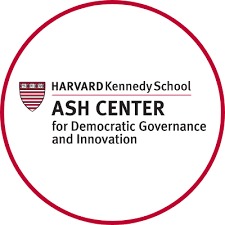Since April, Denver has introduced a new program to help newly arrived migrants in the city: Instead of housing them in emergency shelters for a few weeks, the city is working with a number of nonprofits to get migrant families into apartments, with food assistance and other services, for up to six months while helping them prepare to apply for asylum and to get work.
The city says its new Denver Asylum Seeker Program (DASP) will cost less and provide more complete services than temporary shelters. Along with rent, food, and utility assistance, each family among the initial 800 migrants in the program will be provided a computer, a cell phone, and bus passes.
It’s a big change from the situation up until now, which had often been chaotic, as High Country News outlines. The city had been providing shorter-term shelter in seven hotels that it rented out, as well as in some smaller, congregate shelters, but on a very short timeframe: about two weeks for individuals, six weeks for families. Once that was up,
hundreds of immigrants began living in encampments. Others have obtained leases from city-run programs but then lost their housing because they couldn’t keep up with rent payments. The city has offered shelter to currently unhoused immigrants, but many are reluctant to re-enter the system, citing the poor conditions inside shelters. City officials have continually asked federal officials for more funding, to no avail.
That simply wasn’t sustainable, as Sarah Plastino, director of Denver’s Newcomer Program, explained.
“At our height, we were housing over 5,000 people in hotel rooms. That was on track to be over 10 percent of the city’s budget. Any unbudgeted money we spent had to be cut elsewhere.”
The number of new arrivals in Denver began easing this year, making the “wraparound services” of DASP more manageable, in coordination with nonprofits. As the Associated Press explains, those services continue after participants are settled in apartments.
Then, the city working in coordination with several nonprofits plan to provide courses on English language, computers, financial literacy, and workers rights, while also assisting migrants in getting credentialed in specific industries, like construction, retail, hospitality, healthcare and early childhood education. […]
The support will also include help with the paperwork for asylum applications, and eventually work authorization.
Under the rules for migrants granted humanitarian parole to stay in the US while they pursue asylum, they must wait for six months after applying for asylum before they can get a work permit. The Denver program is designed to help them get ready to live on their own once they get that permit. Participation is limited to those who were already in Denver’s shelter system as of April 10, when DASP began, and who don’t yet qualify for a work permit.
“This is investing in people to set them up to be independent and thrive,” said Sarah Plastino, who’s overseeing the program. “We know that when we set people up for success, people really do succeed.”
Sounds like socialism to us, and that’s pretty awesome. Especially since it’s less expensive and more practical than just shoving people into shelters for a short time and then hoping they do OK after that.
Plastino explained to High Country News that the existing shelter services will remain available for migrants who don’t qualify for DASP because they already have work authorization, or who arrived in Denver after DASP slots were filled.
We’ll develop a waitlist for other folks, so if people graduate or decide to move on their own, they can plug into the program as spots open. […]
People ineligible for the Asylum Seekers Program are immediately eligible to apply for a work permit, and we have ongoing clinics for those folks to apply for their work permits for free. Families also have access to up to $4,500 of rental assistance funds through the state.
Shelter stays for those who don’t qualify for DASP are now limited to 24 to 72 hours, but Plastino said that’s usually enough time to help new arrivals either connect with family elsewhere in the US (Denver pays for transportation) or to get them set up with services if they’re staying in Denver.
She noted that the city’s nonprofits can now better help newly arrived migrants get shelter by the time they leave city shelters, largely because the numbers are more manageable:
Currently we’re receiving about one to two buses a day, around 20 to 30 people. The vast majority of almost everybody that arrives on the bus figures out their situation within the afternoon. Currently, there are only 31 individuals in short-term shelter.
And if the numbers start increasing again, she said, the city is much better prepared to get them into DASP or other services if needed.
The AP notes that the anticipated costs of assisting migrants through the new program will be about half of what was initially estimated in January, allowing Denver to restore some services, like recreation centers, whose funding had to be shifted to cover shelter services.
And as Plastino explained, providing rental assistance for apartments and help with groceries isn’t simply less expensive than renting out hotel rooms and paying for pre-made meals, “It’s also just the right thing to do.”
We imagine there are also some rightwing jerks complaining that Denver is simply doing the bidding of George Soros and advancing the Great Replacement of white people, but fuck ‘em, this is a nice time story the end.
[AP / High Country News / Denverite]
Yr Wonkette is funded entirely by reader donations. If you can, please become a paid subscriber. Or if you’d rather make a one-time donation, we would lurve that too and keep bringing you Nice Times and kittens.
























































![Key Metrics for Social Media Marketing [Infographic] Key Metrics for Social Media Marketing [Infographic]](https://www.socialmediatoday.com/imgproxy/nP1lliSbrTbUmhFV6RdAz9qJZFvsstq3IG6orLUMMls/g:ce/rs:fit:770:435/bG9jYWw6Ly8vZGl2ZWltYWdlL3NvY2lhbF9tZWRpYV9yb2lfaW5vZ3JhcGhpYzIucG5n.webp)




















